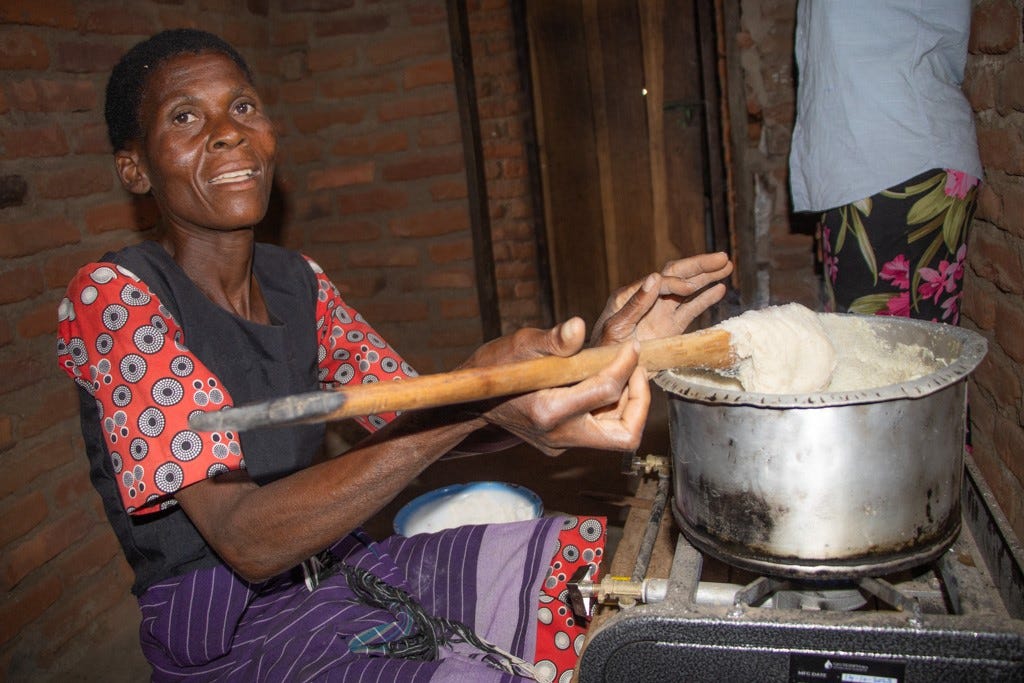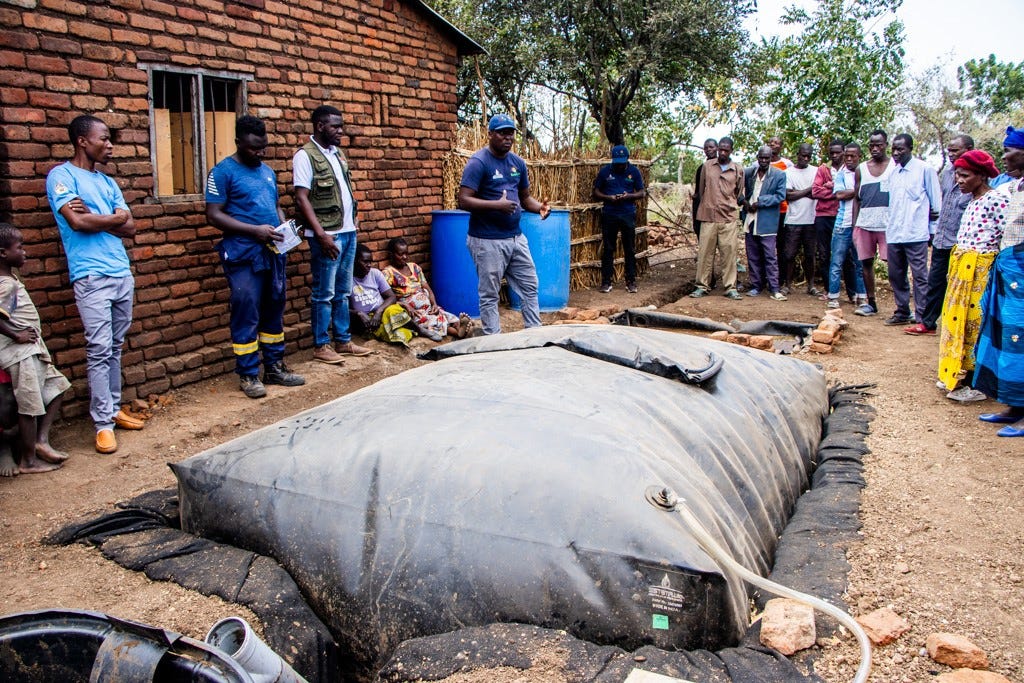From Smoky Kitchen to Sustainable Living: Biogas Transforms Malawi Village
Leji’s story, along with the success of the project, offers a beacon of hope for sustainable development in Malawi.
CHIKWAWA, Malawi — Mary Leji, a mother of six from Belo Village in Chikwawa District, remembers a life filled with the persistent cycle of collecting firewood and battling smoke while cooking, writes Francis Botha.
She was even diagnosed with tuberculosis twice since 2019, but tradition and necessity kept her chained to this harsh routine.
“I’m excited to have benefited from biogas,” says Leji, while cooking her staple dish, nsima.
“No more walking longer distances fetching firewood. I now live like I am in the city, cooking smartly in my house without the choking smoke.”
On Aug. 21, 2024, everything changed for Leji when a biogas digester was installed in her backyard.
The new system has brought more than cleaner cooking—it represents a drastic shift towards a sustainable lifestyle.
For years, Leji contributed to environmental degradation by cutting down trees and buying charcoal in an already disaster-prone area.
Now, the biogas system is powered by livestock dung mixed with water, moving into a reactor that filters out unwanted gases, allowing only methane to reach the kitchen.
The by-product? Liquid bio-fertilizer that can also be used as herbicide or livestock feed.
“I have been cutting down trees and buying charcoal, contributing to environmental degradation,” Leji said.
“The biogas system reduces burdens on me, it cuts fertilizer costs, and improves soil health.”
A few yards from Leji’s house is a sizeable vegetable garden where a group of smallholder farmers are experimenting with the bio-fertilizer to boost their yields and reduce farm input costs.
“The system has multifunctional benefits. It will not just provide gas for cooking, but it will help to reduce deforestation,” says Group Village Headman Chingondo.
“We have plenty of livestock in Ngabu to provide enough dung for biogas production.”
Lloyd Mmangisa, Programme Officer at NCA/DCA Malawi Joint Country Programme, echoes the environmental benefits.
“The biogas system will help villagers reduce wanton cutting down of trees for firewood, which harms the environment. Livestock dung will produce not just biogas, but bio-fertilizer that will reduce the cost of horticultural production,” Mmangisa says.
The biogas initiative is a climate-smart project promoted by NCA/DCA Malawi Joint Country Programme.
Financed by DANIDA as part of the Scaling Up Micro Drip Irrigation and Agriculture Commercialization initiative, the project, which received MWK169,391,384 (NOK 1,114,417), aims to enhance micro-drip irrigation technologies and livestock production.
So far, five biogas systems have been installed around Ngabu, and six local women have been trained to manage the equipment.
Leji’s story, along with the success of the project, offers a beacon of hope for sustainable development in Malawi.
By embracing a climate-smart solution, communities like Ngabu are demonstrating a commitment to preserving the environment while improving their quality of life.




